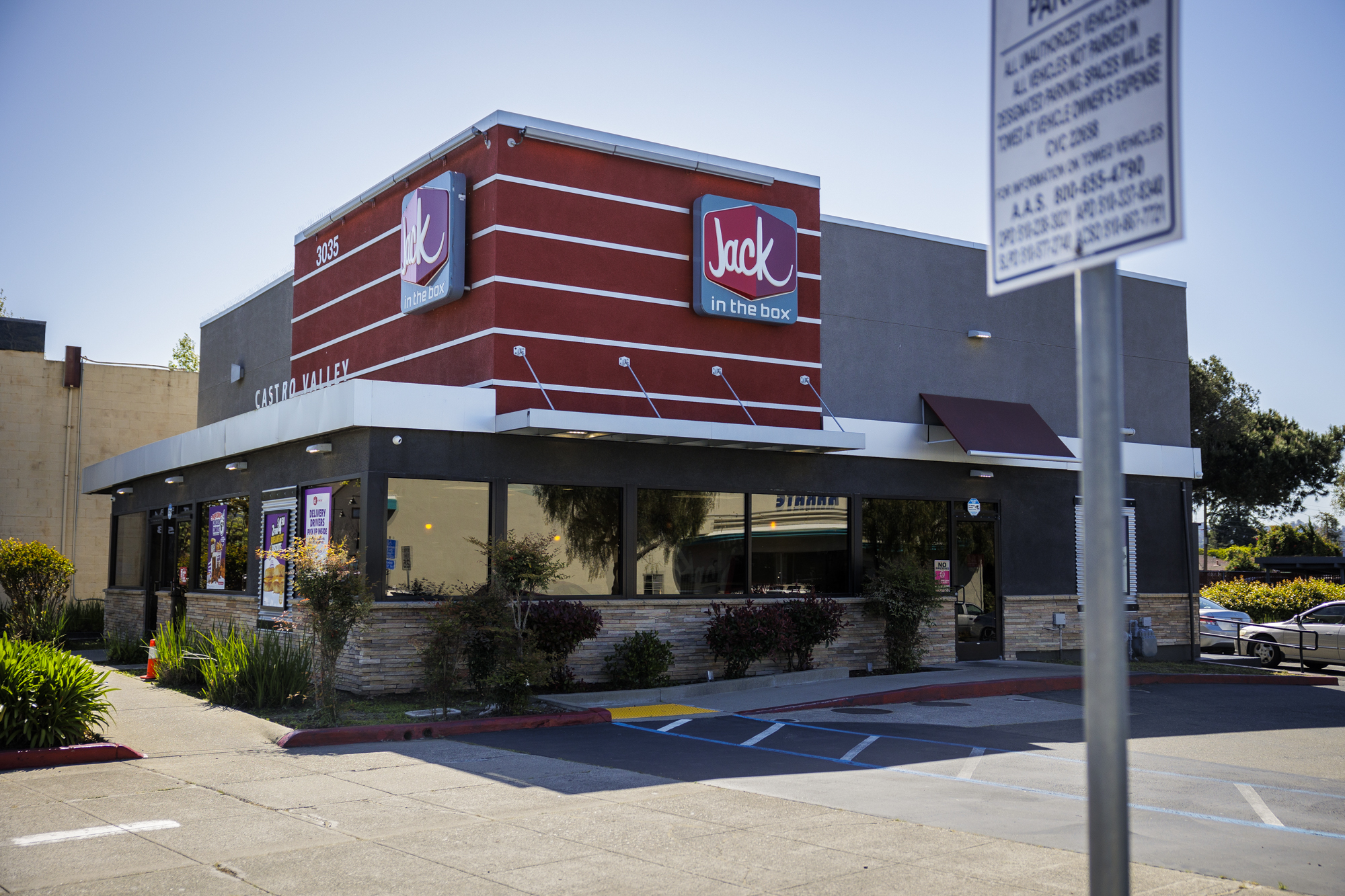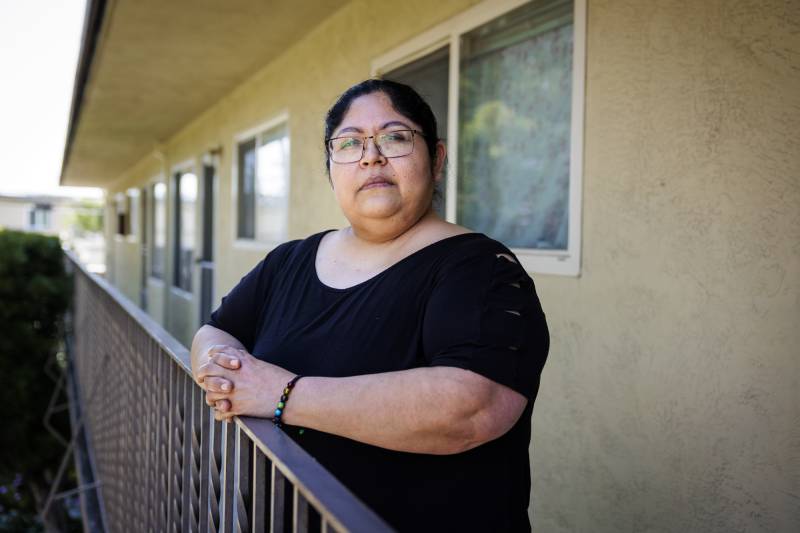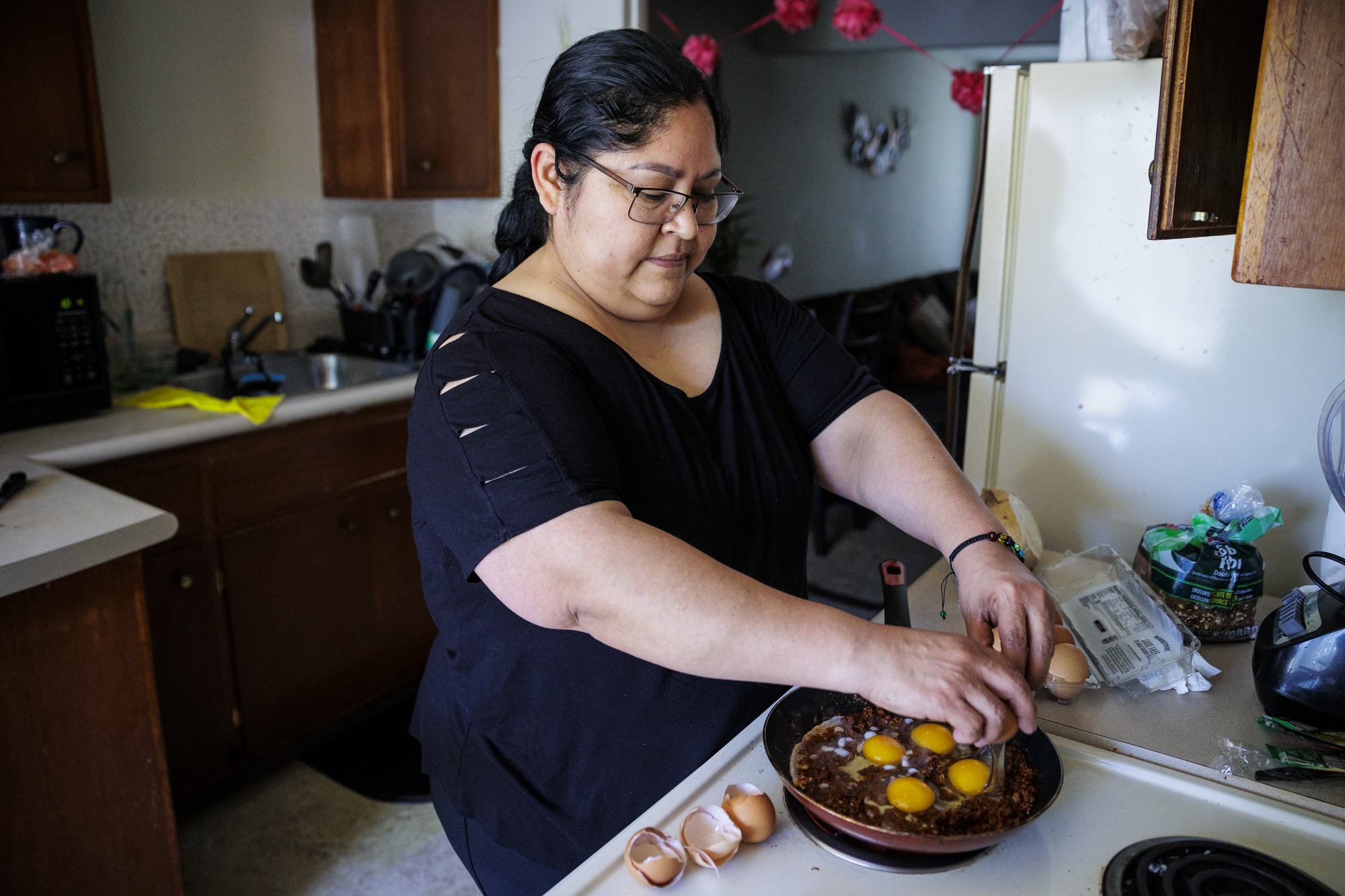When Karina Ceballos received her first paycheck reflecting California’s new minimum wage for fast-food workers, she felt a big wave of relief. The single mom said she earned about $400 extra last month, which made it much easier to pay bills and rent for her family’s apartment in Castro Valley.
Ceballos’ fridge is now packed with green vegetables, fresh mangoes and other fruits — healthier foods for her kids that she couldn’t buy much of before, she said, even as she worked more than 60 hours weekly holding two fast food jobs at a Jack in the Box and a TOGO’s.
“I can really feel the change,” said Ceballos, 43, one of the many workers who has marched and advocated for the wage increase in recent years as state lawmakers weighed the issue. “I feel less stressed out. Before, it was really tight financially. Now, I might be able to even save some money.”
About a month after California began requiring most fast food employers to pay their workers at least $20 an hour, as compared to the state’s $16 general minimum wage, economists said it’s still too early to determine the wage hike’s broader impact on the industry, particularly in light of changing inflation rates and other economic trends.
While some fast food workers, like Ceballos, have reported quality-of-life improvements because of the increase, others said they’ve had their hours cut and actually lost income as quick-service restaurants adjust to more expensive payrolls.
Alejandra Aguilar Perez said her employer at a Taco Bell in downtown Los Angeles cut her hours from about full-time to half-time last month, a drastic drop in overall earnings that left her scrambling to support her 7-year-old daughter.

“I’ve been struggling,” said Aguilar Perez, 28, who is now looking for a second job. “It’s hard to pay bills. It’s hard to pay rent.”
Still, Aguilar Perez notes the long lines at the Taco Bell where she works and said she believes the industry will stabilize in the coming months, prompting employers to restore staffing hours.
“The bosses right now are mad,” she said. “But eventually, they are going to have to give in, and they are going to have to give us our hours.”
The majority of California’s roughly half a million fast food workers are women of color, most of whom previously made close to the state’s $16 an hour minimum wage, according to the UC Berkeley Labor Center.


